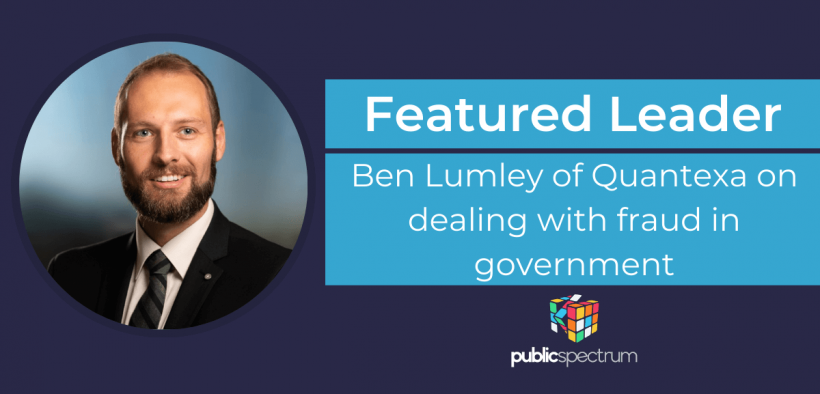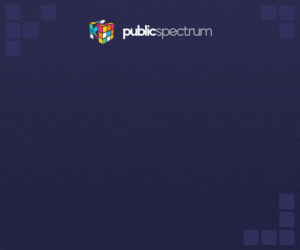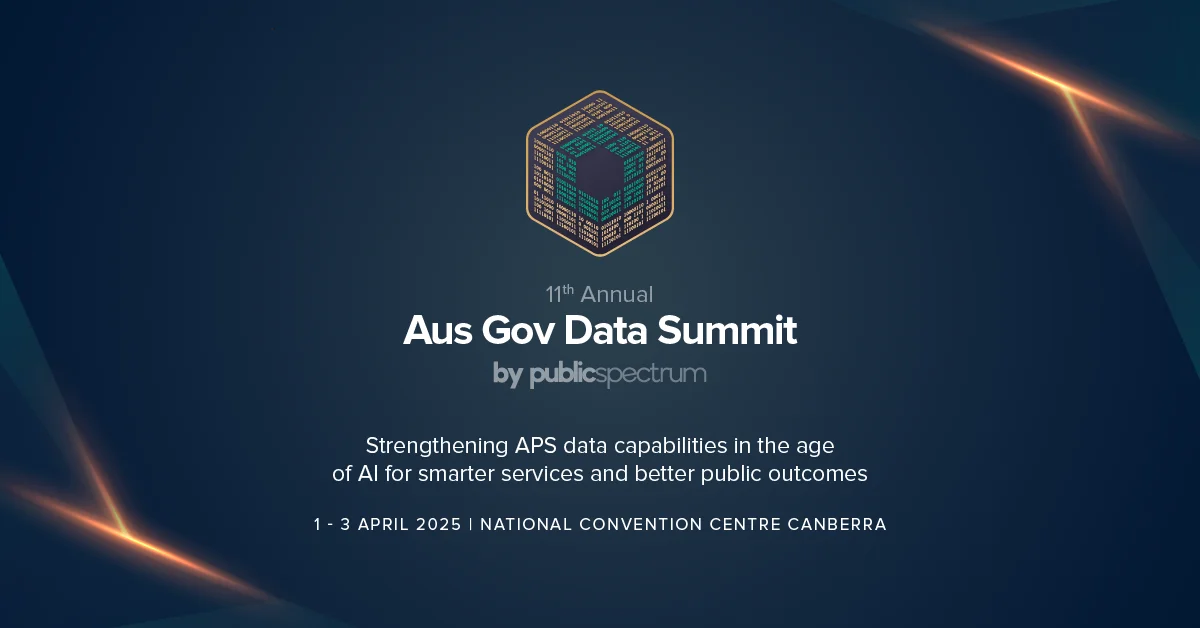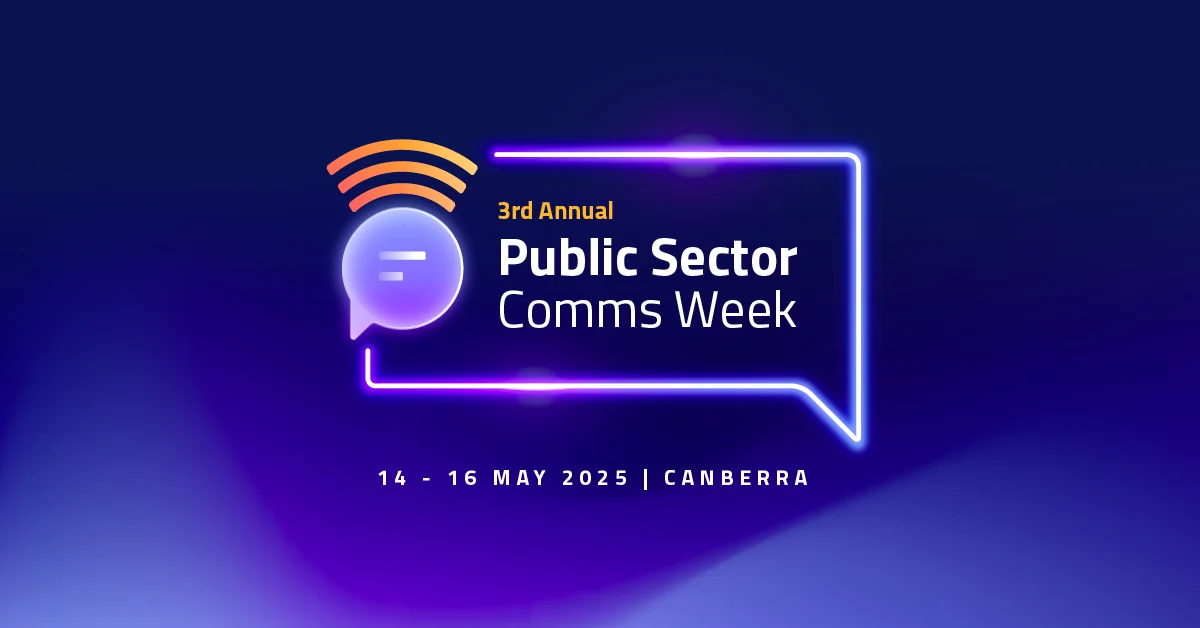Featured Leader: Ben Lumley of Quantexa on dealing with fraud in government
Share

Ben Lumley has over a decade of experience working in the fields of data analytics, insights, and fraud detection. Throughout his career, Ben has led large and specialist teams to drive change and achieve outcomes in several organisations, especially in the Public Sector.
Ben is currently the Head of Government Solutions in Australia at Quantexa, a global data and analytics company that utilises the latest advancements in big data and AI to help Governments and corporations create a connected view of their data for improved risk detection.
How have current fraud trends affected government agencies?
The landscape of current fraud trends is dominated by risks to the Government’s Covid-19 and natural disaster responses. Both State, Territory, and Federal governments have introduced a raft of payments, grants and rebates to support businesses and individuals.
Unfortunately, due to the speed of implementation and the often relaxed eligibility checking and identity verification, fraudsters are targeting these programs as they are seen as a “soft target”. This trend is in line with historical experiences when Governments respond to events or seek to provide a quick economic stimulus.
The increased fraud risk related to Covid-19 and natural disaster responses hasn’t replaced the ongoing risk to regular government payments and programs, it’s merely added to it. This means the focus required by Government agencies must also increase. As those who work to combat fraud know, the risk is ever-present and quickly shifts to areas of weakness and opportunity.
What are the mistakes government agencies usually make when facing these trends?
Government agencies are under increasing pressure to roll-out new payments and programs as it is. Adding to this the unpredictable urgency of Covid-19 and natural disasters further exacerbates these pressures and often results in unmitigated fraud and abuse risks.
Specific challenges Government agencies must overcome are:
- Some Government agencies still think there has to be a trade-off between the speed of processing claims and payments, and appropriate and intelligent fraud and abuse controls. With today’s sophisticated analytical tools, backed by modern processing power, “right time” analytics can be deployed to help triage and provide opportunities for speedy, straight-through processing without human intervention.
- Engaging with risk is a fundamental responsibility and expectation of public servants. But often this too is unnecessarily seen as a trade-off by Government agencies. When overseeing the roll-out and administration of temporary programs and payments, which sometimes have a low payment per claim value, there seems to be a shift to a higher fraud and abuse risk tolerance. But as we have seen these programs have a significant total expenditure and often get extended and further funded. Additionally, and unfortunately, natural disasters will continue and, in light of global warming concerns, may possibly even increase.
- While relevant to the current fraud trends, the fraud and abuse risk posed by third parties has been experienced by Government agencies for some time. That said, I still see many Government agencies struggle to screen and risk assess these third parties as they are onboarded or in an ongoing manner. Government agencies rely on third parties to deliver tailored, hands-on government services. They play a pivotal role between Government and citizens and receive large amounts of funding. Government agencies are often at “arms” length to the services they are funding and without fully understanding these third parties or the risk they pose.
As Head of Government Solutions in Quantexa, how have you guided these agencies in strengthening their anti-fraud strategies?
Following my extensive career in the public sector, I am fortunate to be able to support Government clients with Quantexa’s industry-leading solution, Contextual Decision Intelligence.
Quantexa supports Government clients to:
- Reduce fraud losses – Improve detection rates to flag illicit activity before the money is lost.
- Identify new risks – Track emerging trends and stay ahead of emergent typologies.
- Reduce false positives – Discount explainable signals to allow investigators to focus on high-risk issues.
- Enrich investigations with context – Gather everything you know about an individual or business, from shared identities to bank accounts and transactions.
- Reveal hidden and subtle activities – Draw on a wider network instead of looking at isolated events to gain a full picture of risk.
- Dedicate more time to real fraud – Identify and concentrate on high-risk issues rather than false positives.
What are the best strategies that will help reduce or prevent damage caused by fraud?
- Generate a single view of your agency’s data to bridge the data decision gap, consolidate vast amounts of internal and external data, and make better, more informed data-driven decisions.
- Reveal connections that matter using effective entity resolution and network generation.
- To increase efficiency and productivity in reducing the impact or preventing the damage caused by fraud, Government agencies need to leverage the collective skills and knowledge across the agency.
- Use advanced technologies to counter more sophisticated criminals.
- Partner with other Government agencies to exchange data, intelligence, and risks. One data exchange pilot I supported showed a >70% overlap in third party providers between the two different Government programs. Imagine the potential collective intelligence these two agencies could leverage to address what would be a large portion of shared risk.
Eliza is a content producer and editor at Public Spectrum. She is an experienced writer on topics related to the government and to the public, as well as stories that uplift and improve the community.






















